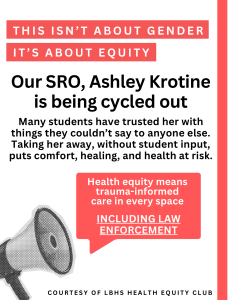Should graduates choose their walking partners? YES
March 23, 2016
It is hard to think of more rewarding a time than graduation. After 13 years (including kindergarten) of slaving away at schoolwork, or just struggling to show up to class every day, graduation marks a symbolic end to years of oppression and conformity. It is the end of high school and the beginning of a new chapter: life in the Real World.
One of the only things– well, pretty much the only thing– that makes high school bearable on a day-to-day basis is friends. Of course, there are long-term goals we set for ourselves, but those aren’t enough to get us out of bed every morning, to keep us awake through the dreary hours of classroom instruction. Friends are the backbone of our high school experience.
Imagine, then, a high school graduation. Your high school graduation. You’re getting ready to take your seat and, eventually, receive your diploma.
Now imagine going through this exciting process without your closest friends by your side. It doesn’t sound half as fun now, does it?
Walking with one’s closest friends at graduation is a long-standing tradition. Sure, some traditions are outdated– but is this one of them? I hardly think so.
High school is a time to form good friendships, some of which will last your entire life. What, then, would be the point of assigning random walking partners, partners who probably never talked before graduation and are likely to never see each other again?
Now, I’m not one to object to any changes the school decides to make. But this one I feel affects me directly– affects all of us directly. I cannot simply sit by as our school strips us of this liberty, our First Amendment right to express ourselves as we wish by walking with those we love.
Such a change strips away the joy and familiarity from what can only be described as one’s biggest accomplishment up to that point in life.
This is not a question of popularity. Even the “less popular” (in quotes because I don’t personally think popularity is really a thing at this school) have friends.
As opposed to randomly matching students who already have partners in mind, perhaps it would be more beneficial to randomly match those students who do not register their partners before a certain deadline.
This process basically tells students that they can decide; otherwise, the school will decide for them. It will perhaps motivate more students to register, maybe even go out there and make some new friends.
Let’s face it: The only time randomness is appreciated is in the gold standard of experimental design. Other than that, human beings tend to appreciate their right to choose.
That’s one of the beautiful things about this nation. We can choose.





